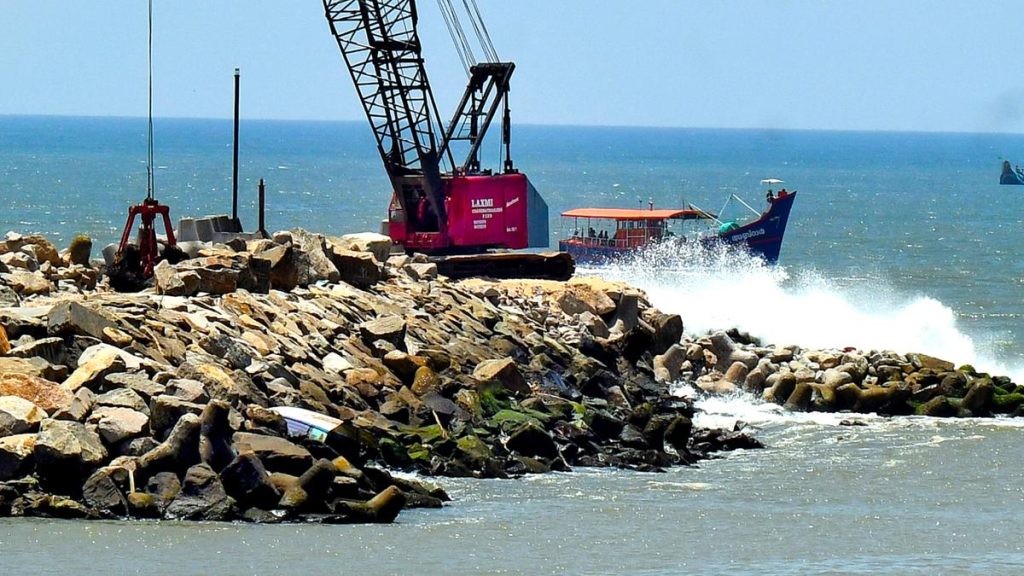Syllabus:
GS3: Conservation, environmental pollution and degradation, environmental impact assessment.
Context:
The Liberian-flagged cargo vessel MSC ELSA 3 capsized and sank off the Kerala coast.
More on the News:
- Recently, a Liberian-flagged cargo ship, MSC ELSA 3, carrying 640 containers including 13 hazardous cargoes, capsized and sank off the coast of Kerala.
- All crew members were safely rescued by the Indian Coast Guard (ICG) and Indian Navy.
- The incident raised fears of an oil spill along the southern Kollam coast, as some containers began washing ashore.
- The Indian Coast Guard (ICG)’s ship Saksham, equipped with pollution response equipment, has been deployed.
- An ICG aircraft with advanced oil spill mapping technology is also monitoring the area.
- According to the ICG, the ship capsized due to flooding in one of its cargo holds.
Key materials onboard included:

- 13 hazardous cargo containers
- 12 containers of calcium carbide
- 84.44 metric tonnes of diesel
- 367.1 metric tonnes of furnace oil
Understanding Oil Spills
- Oil Spills occur when oil is accidentally released into marine environments due to human error, equipment failure, or natural disasters.
- Oil forms a layer over water, blocking sunlight, affecting photosynthesis, and disrupting marine ecosystems.
Environmental Impacts
- Phytoplankton, the base of many food chains, are unable to carry out photosynthesis functions, which hinders their survival and their production of oxygen.
- Birds lose their insulation abilities if oil coats their features. Consequently, they can die from hypothermia or drowning.
- Fish and invertebrates suffer reproductive and developmental harm.
Impacts vary depending on:
- Type and volume of oil
- Weather conditions
- Proximity to sensitive ecosystems
Methods of Oil Spill Cleanup
- Skimming: Physically removing oil from the water surface.
- In situ burning: Controlled burning of oil patches at sea.
- Chemical dispersants: Break oil into smaller droplets for microbial degradation.
Regulatory Frameworks
Global Mechanism
- The MARPOL convention, formally known as the International Convention for the Prevention of Pollution from Ships, is the main international treaty aimed at preventing and minimizing pollution of the marine environment by ships.
- India is a signatory to the convention.
Includes six annexes, covering:
- Oil
- Noxious liquid substances
- Dangerous goods (packaged)
- Sewage
- Garbage
- Air pollution
Mechanisms in India
The Merchant Shipping Act, 1958, enforces the MARPOL Convention.
- It has provisions on civil liability and pollution prevention certificates.
Indian Coast Guard is the nodal agency for oil spill response.
Ports also maintain oil spill contingency plans.

